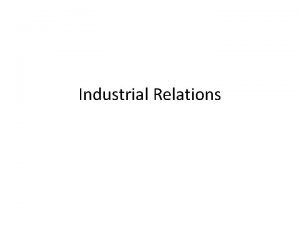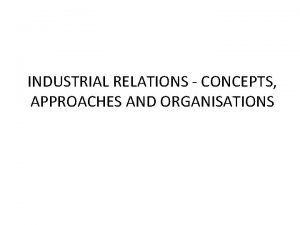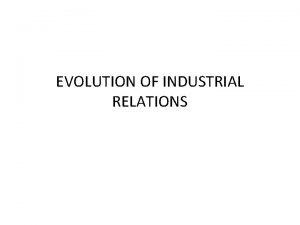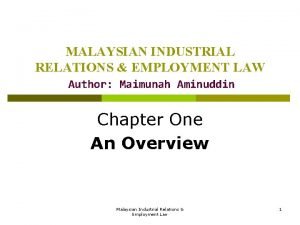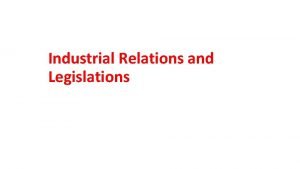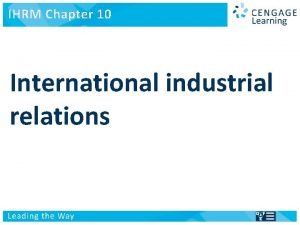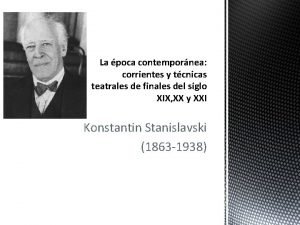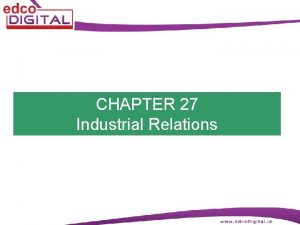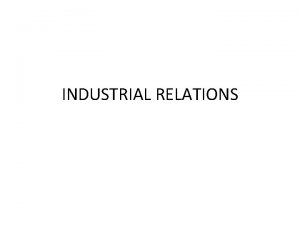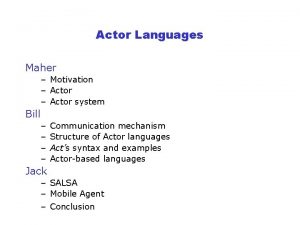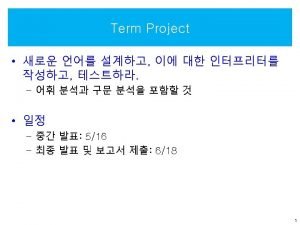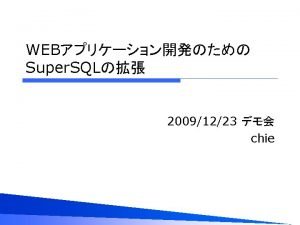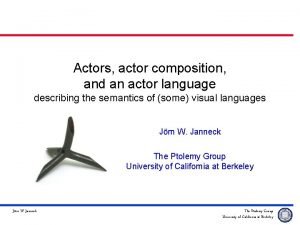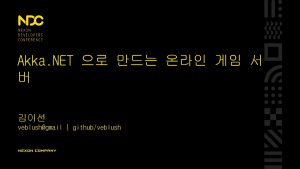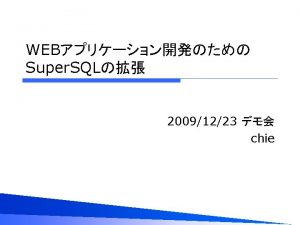Management as an Actor in Industrial Relations Nonunion

















- Slides: 17

Management as an Actor in Industrial Relations • Nonunion or Union • Nonunion – Direct Effects • Lowers profitability • Indirect Effects – Productivity – Wage Distribution – Internal Labor Markets LIR 858/Mgt Strat 1

BUSINESS STRATEGY AND MODERN (UNIONIZED) PRIVATE SECTOR INDUSTRIAL RELATIONS • TWO DISTINCT PERIODS – 1930’s - 1970’s – Since 1970’s LIR 858/Mgt Strat 2

Unionized Labor Relations Models 1935 Through 1970’s • Institutionalized Adversarialism (New Deal Model) – mutual recognition of institutional legitimacy of other party – sharply defined roles • Management manages the organization • Union protects and represents the workers – Long-term contracts • Rights of each party • Workplace laws – structured communication - negotiations and grievance procedure LIR 858/Mgt Strat 3

Nonunion Models Developing in 1960’s • Emulate Union Models in some ways • Written Policies – Corporate or Division Wide – Removed discretion of first-line supervisors • With flexibility because policies can be changed or interpreted to fit changing environment LIR 858/Mgt Strat 4

Bifurcated Private Sector ER System • By late 1970’s – Unionized (partially) sector • • • Older Manufacturing Companies Construction Utilities Transportation Old Telecommunication – Nonunion sector • Newer Manufacturing Companies • Retail • Business Services – Emerging Unionized Sector • Health Care LIR 858/Mgt Strat 5

THREE POST-1970’S EMPLOYER CB STRATEGIES • DEUNIONIZATION – CONFLICT – INVESTMENT • TRADITIONAL ADVERSARIALISM • COOPERATION • MANAGEMENT NO LONGER NECESSARILY WILLING TO ACCEPT “NEW DEAL” SYSTEM AS THE MODEL OF BARGAINING LIR 858/Mgt Strat 6

DEUNIONIZATION Conflict • Use of legal right to bargain without concessions • Union Options – accept an “unacceptable” contract – strike and risk replacement • Er may permanently replace strikers • Claim “good faith doubt” about union’s majority status • “Pyramiding” of legal rights by employer LIR 858/Mgt Strat 7

Deunionization/Conflict Examples • • Detroit Newspapers International Paper Greyhound Continental Airlines (mid ‘ 80’s) LIR 858/Mgt Strat 8

DEUNIONIZATION Investment • Company invests in nonunion facilities – “greenfield” – older nonunion facilities • Examples – rubber tire industry – some paper processing firms – auto industry (Mexico) LIR 858/Mgt Strat 9

TRADITIONAL ADVERSARIALISM • Examples – Trucking Industry – Aerospace – Airlines LIR 858/Mgt Strat 10

COOPERATION • Creation of non-adversarial structures for communication • Reduce labor costs by reducing the costs of adversarialism • Permits firm to better exploit knowledge of workers • Focus on common, rather than conflicting, interests LIR 858/Mgt Strat 11

MANAGEMENT COLLECTIVE BARGAINING STRATEGIES Conflict/ Deunionization Institutionalized Adversarialism (Traditional) LIR 858/Mgt Strat Cooperation 12

Different Bargaining and Contract Administration Models • Bargaining – Adversarial: Positional Bargaining • Each side provides position to other party • Listens • Modifies position – rationale – bargaining power LIR 858/Mgt Strat 13

Cooperative Interest-Based Bargaining Processes • Example: Mutual Gains Bargaining – – Define problems and interests - separate Discussion of problems and interests - joint Brain-storming of solutions - joint Recommendations of possible solutions separate – Presentation of recommendations and selection of solutions - joint LIR 858/Mgt Strat 14

Administration Process • • Longer-Term Agreements Problem-Solving Teams Team-Based Production Joint Committees LIR 858/Mgt Strat 15

Examples of Cooperative Relationships • National Steel and United Steelworkers of America • Ford and UAW • GM and UAW • Philip Morris (Trenton, Ohio) and UAW LIR 858/Mgt Strat 16

Fundamental Question • Does Management challenge the institutional legitimacy/status of the union? – No • Cooperation • Institutionalized Adversarialism – Yes • Deunionization LIR 858/Mgt Strat 17
 Employee relations in public relations
Employee relations in public relations Connotation meaning
Connotation meaning Industrial relations in india
Industrial relations in india Trusteeship approach to industrial relations
Trusteeship approach to industrial relations Evolution of industrial relation
Evolution of industrial relation Introduction to industrial relations
Introduction to industrial relations Maimunah aminuddin
Maimunah aminuddin Importance of industrial relations
Importance of industrial relations Industrial relations approaches
Industrial relations approaches International industrial relations in ihrm
International industrial relations in ihrm Theory of industrial relations
Theory of industrial relations Dramaturgo poeta y actor inglés
Dramaturgo poeta y actor inglés Zhen jiang actor
Zhen jiang actor John pryor actor
John pryor actor Richard pattinson
Richard pattinson Ray tracing actor
Ray tracing actor Corrientes teatrales
Corrientes teatrales Heroes robert cormier summary
Heroes robert cormier summary

